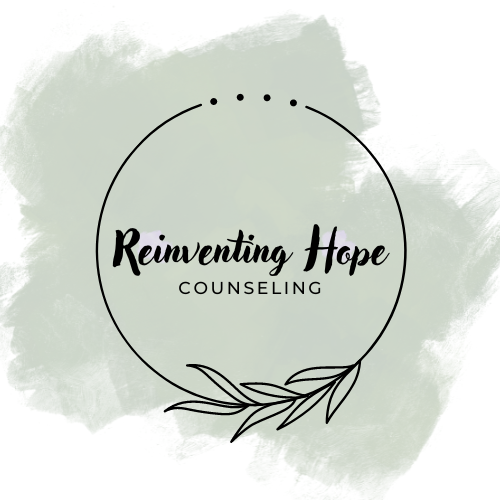What is Anxiety and How Do I Cope With It?
What is Anxiety and How Do I Cope With It?
Occasional feelings of anxiety (fear and worry) is a normal part of life, but those with unhealthy anxiety experience overwhelming, frequent, and excessive symptoms that can get worse over time and affect work, relationships, and daily life. Anxiety disorders are the most common mental disorders in the U.S.
What is anxiety and how does it differ from stress?
Anxiety is a mental health condition characterized by feelings of worry, fear, apprehension, and unease. Often confused with stress, anxiety has much deeper causes and typically requires more in-depth treatment. Anxiety typically stems from past trauma, depression, or overthinking about what could go wrong in the future.
The different types of anxiety disorders
Anxiety is a common experience, and with it come different types of disorders that are classified based on the severity, type, and length of symptoms. While generalized anxiety disorder (GAD) is often associated with chronic worrying and stress, panic disorder causes sudden bouts of intense fear that can include physical symptoms such as nausea and sweating. Social anxiety disorder presents itself through excessive self-consciousness in social situations, and specific phobias lead to persistent fears related to situations or objects.
Symptoms of anxiety and how it can manifest itself
Symptoms of anxiety can range for each individual, be caused by a variety of stressors, and can manifest differently. Common symptoms are shortness of breath, restlessness, avoidance of situations, rumination, feeling lightheaded, muscle tension, nausea, sleep issues, difficulties in concentrating, lack of appetite, and heart palpitations. Those experiencing anxiety may also become easily irritable or on edge with subtle changes to their environment or routine, while also feeling overwhelmed by thoughts of the future.
Causes of anxiety - both psychological and physical factors
Anxiety can be triggered by different factors such as being exposed to stressful situations, worrying too much, or having medical conditions that affect the nervous system. Stressful life events, such as loss of a job or death of a loved one can cause high levels of anxiety. Trauma from childhood - even long forgotten experiences - can also be linked with the development of an anxiety disorder. Additionally, certain environmental factors, such as media portrayal, may increase feelings of stress or fear leading to anxiety. Physical causes include potential imbalances in the hormones and neurotransmitters responsible for regulating mood and creating relaxation responses in the body. These imbalances could be caused by an underlying medical condition like thyroid disease or chronic fatigue syndrome.
Treatments for anxiety
Managing anxiety can be challenging, but there are various techniques and strategies that can help. Here are ten tips to consider:
Practice deep breathing: Deep breathing exercises, such as diaphragmatic breathing, can help activate your body's relaxation response and reduce anxiety. Take slow, deep breaths, filling your abdomen and then exhaling slowly.
Engage in regular physical exercise: Physical activity releases serotonin, which are natural mood boosters. Regular exercise can help reduce anxiety and promote overall well-being. Aim for at least 30 minutes of moderate-intensity exercise most days of the week.
Prioritize self-care: Make sure to prioritize self-care activities that help you relax and recharge. This can include getting enough sleep, eating a balanced diet, engaging in hobbies you enjoy, and taking breaks when needed.
Challenge negative thoughts: Anxiety often involves negative thinking patterns and/or unrealistic expectations of yourself. Identify, challenge, and reframe negative thoughts by questioning their validity and replacing them with more positive and realistic statements. Journaling your thoughts can be a great first step!
Practice mindfulness and meditation: Mindfulness and meditation techniques can help you focus on the present moment, reducing anxiety and promoting a sense of calm. Try incorporating mindfulness exercises or guided meditation into your daily routine.
Seek social support: Reach out to trusted friends, family members, or support groups who can provide understanding, empathy, and encouragement. Sharing your feelings and experiences with others can help alleviate anxiety.
Limit caffeine and alcohol intake: Stimulants like caffeine can increase anxiety levels, so it's advisable to limit your consumption. Alcohol may provide temporary relief, but it can also exacerbate anxiety symptoms in the long run.
Establish a routine: Creating a daily routine can provide structure and stability, reducing feelings of uncertainty and anxiety. Plan your days, set achievable goals, and establish consistent sleep and meal times.
Avoid excessive news (or social) consumption: Constant exposure to distressing news can heighten anxiety levels. Limit your news consumption, and choose reliable sources to stay informed. Allocate time for more positive and uplifting activities instead.
Consider professional help: If anxiety significantly affects your daily life and you're struggling to manage it on your own, consider seeking therapy where you have access to guidance, support, and specialized treatment options tailored to your needs that may involve different modalities from cognitive behavioral therapy to somatic work.
It is normal to have some anxiety, however, an unhealthy amount of anxiety can be difficult to understand and even harder to manage. But with the right information and support, it is possible to get anxiety under control and live a happy, healthy life. If you or someone you know is struggling with anxiety, don't hesitate to reach out for help today.
Let's get you on the path to recovery! Reach out today for a free consultation.
For more information, visit these articles:
For those dealing with a loved one with anxiety, check out this article.
